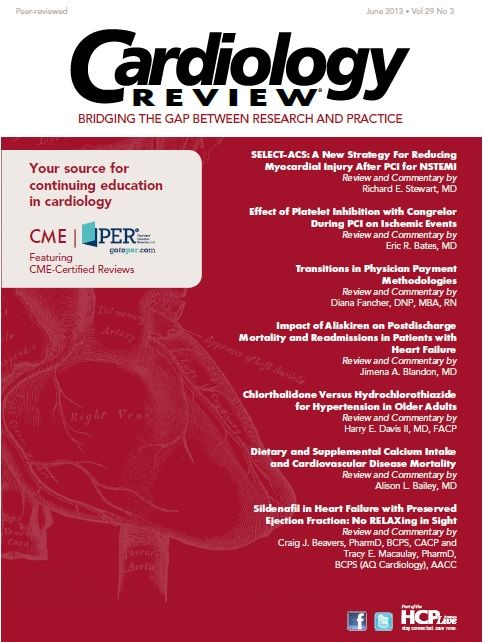Publication
Article
Cardiology Review® Online
What Your Patients Are Reading
Common Painkillers Can Increase Risk of Heart Problems
Ibuprofen and diclofenac can slightly increase the risk of heart problems if they are taken in high dosages over a long period of time, according to a new meta-analysis in Lancet (BBC News HEALTH, May 29, 2013).
The study, by University of Oxford researchers, found that the heart risk related to taking these 2 drugs in high doses for long periods was even higher for smokers and overweight people.
Researchers analyzed over 353,000 patients’ records from 639 clinical trials and assessed the impact of nonsteroidal antiinflammatory drugs (NSAIDs) on cardiac health. They looked at high-dose prescriptions rather than nonprescription-strength relief (150 mg/d diclofenac, 2400 mg/d ibuprofen).

The study concluded that for every 1000 people taking the drugs, there would be 3 additional heart attacks, 4 more cases of heart failure, and 1 death, as well as cases of stomach bleeding, every year as a result of taking these medications. This adds up to an increase in the number of heart attacks from 8 per 1000 people per year to 11 per 1000 people per year when the drugs were taken for long periods at high doses. Lead researcher, Colin Baigent, noted that those already at risk of heart problems would be at even greater risk with the high-dose drugs.
A more detailed discussion found in the American College of Cardiology’s CardioSource.org said the authors’ analysis showed clearly that the vascular risks of diclofenac, and possibly ibuprofen, are similar to coxibs, but that naproxen is not associated with an increased risk of major vascular events. They added that their study indicates that “the effects of different regimens in particular patients can be predicted, which could help in guiding decisions about the clinical management of inflammatory disorders.”





